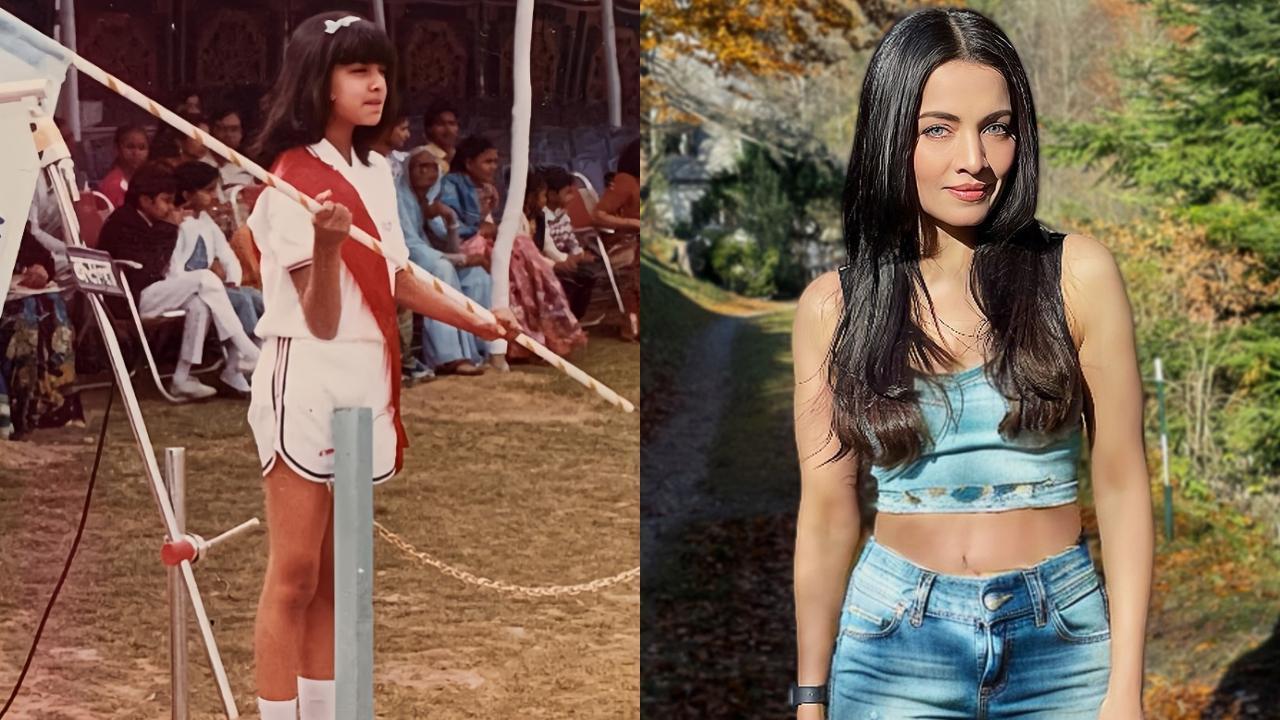
In a heartfelt and concerning revelation, actress and former beauty queen Celina Jaitly discussed the pressing issue of women’s safety while sharing disturbing personal experiences from her school days. The news of a Kolkata doctor’s murder and rape has sparked national outrage, with numerous women voicing fears over the escalating safety concerns in the country. Against this backdrop, Jaitly opened up about the various unsettling incidents she endured, showing how the blame was always unfairly placed on her as the victim.
Celina Jaitly took to Instagram to share her story. Alongside an image from her sixth-grade days, she elaborated on chilling events that haunt her to this day. “THE VICTIM IS ALWAYS AT FAULT: In this pic, I was in 6th grade only when boys from a nearby university started to wait outside my school. They would follow the school rickshaw making catcalls all the way home every day,” Celina wrote, shedding light on how such harassment became part of her daily routine.
Sadly, her situation escalated as ignoring the hooligans only emboldened them. She recounted, “A few days later because of that they started throwing stones at me in the middle of the road to get my attention. Not one bystander batted an eye.” Such uncomfortable instances were almost normalized in her life, compounded by the shocking reaction she received from her own teachers.
In a particularly poignant moment of victim-shaming, Celina recalled, “I was told by a teacher: It was because I was ‘too westernized and did not wear loose clothes and did not tie my hair in two braids with oil it was my fault!’” This statement encapsulates the general societal attitude that often punishes the victim instead of addressing the perverted behavior of the aggressors.
Despite the young age, Jaitly was stoically silent about a horrifying encounter where a man exposed himself to her while she waited for her school rickshaw. “For many years I blamed myself for this incident which I kept to myself, running the words of the teacher again and again in my mind that it was MY FAULT!” she wrote, emphasizing how deeply such unjust blame can burrow into one’s psyche.
Unfortunately, these distressing episodes did not cease as she grew older. Celina detailed another traumatic event from her 11th grade, “I still remember they cut the wire of my scooty’s brakes because I was not acknowledging the university boys who heckled and called me rude names & left lewd notes on my scooty.
. My male classmates got scared for me and told our teachers. My class teacher called me and told me ‘You come across as a FORWARD type of girl, riding a scooty and wearing jeans to extra classes with short open hair that’s why boys think you are of a loose character.’ It was always my fault.”
The danger Celina faced was not just psychological but also physical. “I still remember that day jumping off my scooty to save myself because of my brake wires being cut off. I was hurt badly and yet it was my fault. My scooty was damaged… I was both physically and psychologically hurt… And I was told it was MY FAULT!” Her recounting underscores how the victim is repeatedly victimized, both by the perpetrators and by those who are supposed to offer guidance and protection.
Support was scarce even at home. Although her grandfather, a retired Colonel who fought two wars for the country, escorted her to and from school, his presence did not deter the tormentors. She revealed, “My retired Colonel Grandfather who fought two wars for our country in his old age had to take to escorting me back and forth to school… I still remember those rude boys who chased me even damaging my scooty they also passed derogatory remarks on my retired colonel grandfather making fun of him. Nana stood and stared at them and then he turned away shook his head and I could read his face as he walked away with me. His disgust at the very people he laid his life on the line for.”
In her closing remarks, Celina Jaitly called for collective action to address these incidences, stating, “It’s time to stand up and ask for our right to be protected WE ARE NOT AT FAULT.” Her powerful message underscores a vital societal failing: the urgent need to reassess our approach to women’s safety, both in terms of policy and cultural attitudes. This tragic recounting of her past experiences serves as a call to action for society to better protect its women and to cease the detrimental practice of victim-blaming.












